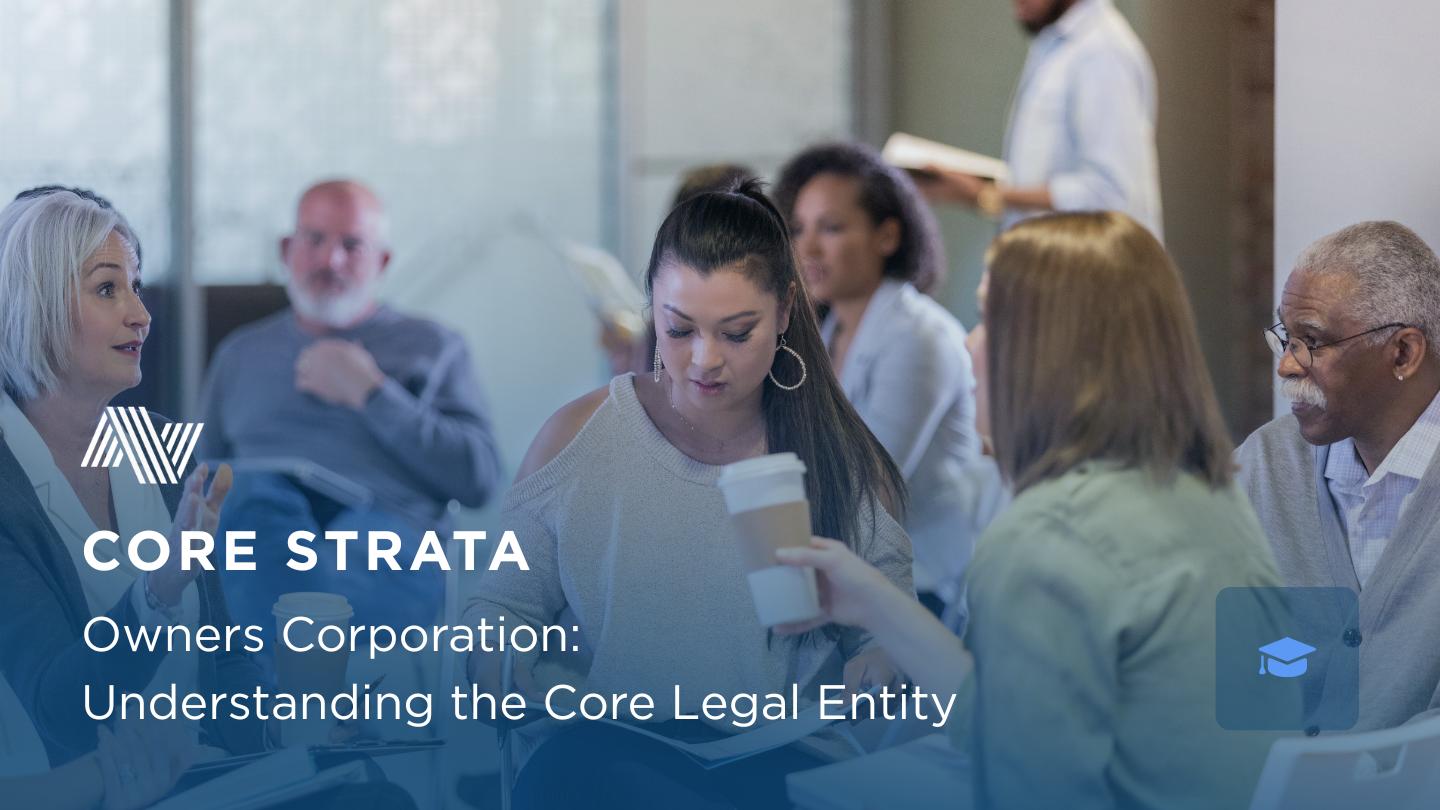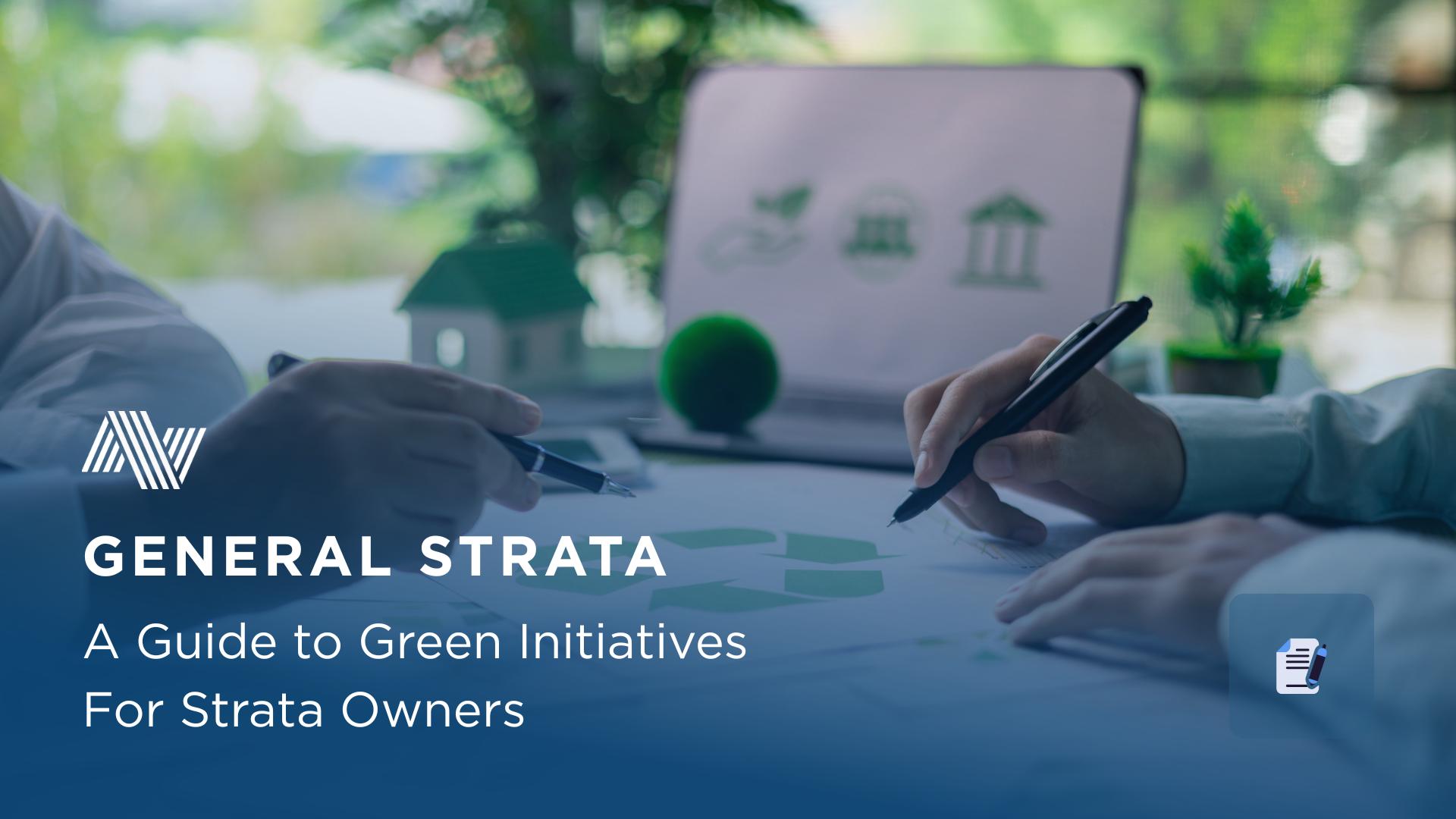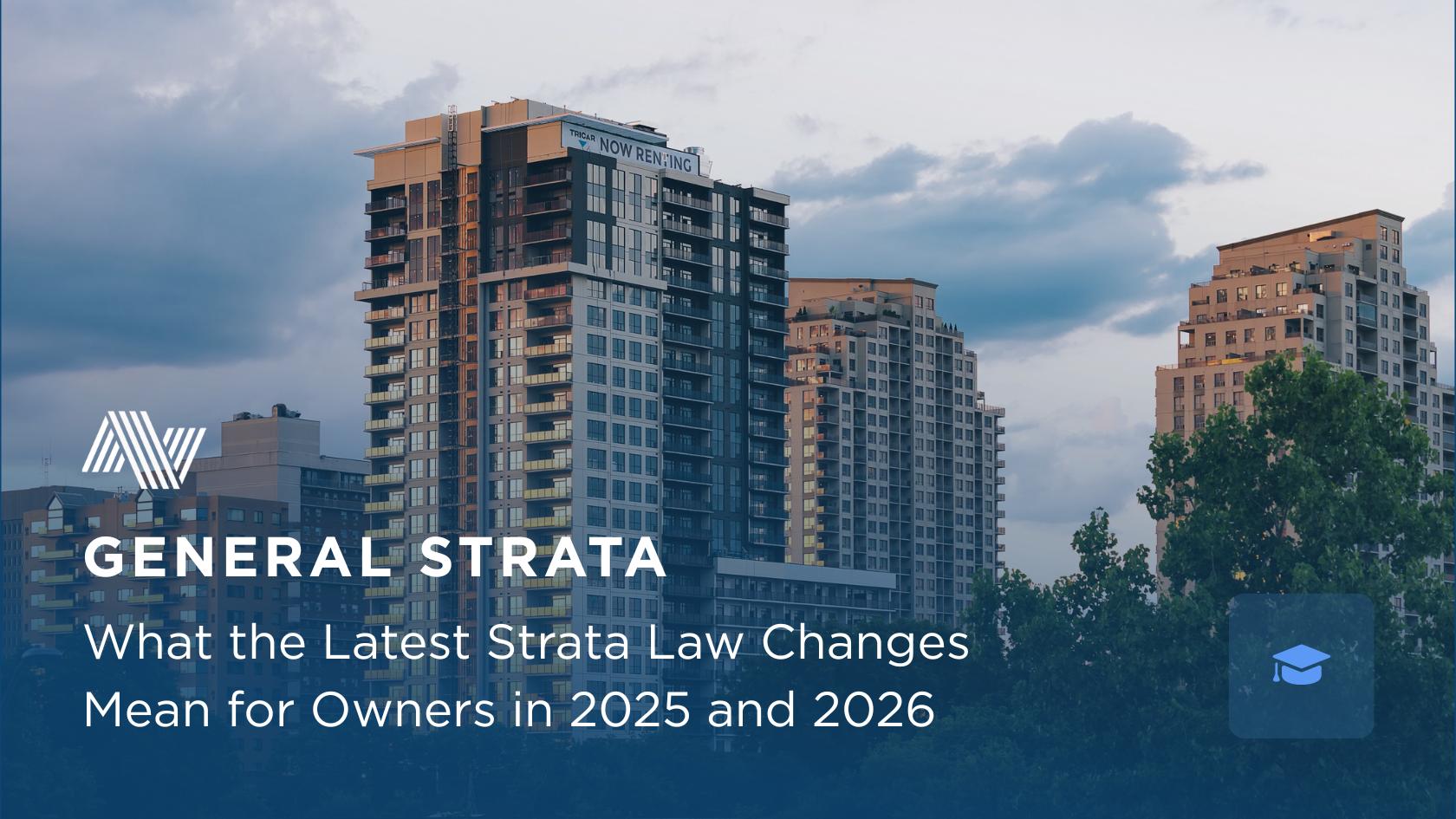Getting Started: An Intro to Core Concepts
Note: This article is intended as a general guide only, and should not be taken as legal or professional advice. It’s essential to consult with a qualified professional or seek advice from your managing agent if you have specific questions or concerns about strata living.


The One-Minute Guide to Core Concepts
If you only read one section, here are the key takeaways:
Meetings & Decision-Making – Owners vote on budgets, maintenance, and by-laws through properly convened meetings under NSW law.
The Strata Committee – An elected group of owners manages day-to-day decisions, enforces rules, and ensures compliance with legislation.
The Owners Corporation – The legal body made up of all lot owners, responsible for common property, finances, and insurance.
Stakeholders – Lot owners, committee members, tenants, and prospective buyers each need to understand how governance impacts them.
Why It Matters – Knowing how decisions are made and who is responsible empowers you to participate effectively and safeguard your investment.
Once you understand what a strata scheme is, the next step is to learn its core governance concepts. These are the building blocks of how decisions are made, who carries them out, and how your rights and responsibilities fit into the bigger picture.
Unlike a free-standing property, strata living is built on collective decision-making, shared responsibilities, and legal compliance. At the heart of this system are three key elements:
- Meetings & Decision-Making – the democratic process for owners to vote and set directions.
- The Strata Committee – the elected group managing day-to-day affairs.
- The Owners Corporation – the legal entity representing all owners.
By learning how these parts work together, you’ll be better equipped to participate, protect your interests, and contribute to a well-functioning scheme.
Meetings and Decision-Making in NSW Strata Schemes
Meetings are the foundation of democracy in strata living. Owners come together to vote on budgets, by-law changes, maintenance, and other important issues.
Under the Strata Schemes Management Act 2015 (SSMA), all meetings must:
- Be properly convened and notified.
- Allow owners to participate.
- Reach decisions by majority vote (unless otherwise specified).
Fair and transparent meetings ensure every owner’s voice can be heard.
Who Needs to Know This?
- Lot Owners: Essential – you vote on matters affecting your property value.
- Committee Members: Critical – you may be responsible for calling and running meetings.
- Strata Managers: Essential – often assist in convening meetings and ensuring compliance.
- Tenants: Helpful – understand how rules are made and enforced.
- Prospective Buyers: Useful – shows how democratic and transparent the scheme is.
TL;DR: Owners vote at meetings to decide budgets, rules, and maintenance. Meetings must be transparent and follow the law.
Continue Reading? Explore more about meetings & voting in strata schemes.
The Strata Committee in NSW Strata Schemes
The Strata Committee is a group of owners elected by the Owners Corporation to handle day-to-day decision-making. They play a vital role in ensuring the scheme runs smoothly.
Typical responsibilities include:
- Managing and maintaining common property.
- Implementing decisions of the Owners Corporation.
- Ensuring compliance with the SSMA.
Who Needs to Know This?
- Lot Owners: Essential – you elect the committee and can stand for election.
- Committee Members: Critical – you carry out decisions on behalf of all owners.
- Strata Managers: Essential – often support the committee with administration and compliance.
- Tenants: Helpful – understand who enforces by-laws.
- Prospective Buyers: Useful – gives insight into the scheme’s leadership and management.
TL;DR: The Strata Committee is the elected group of owners who manage day-to-day decisions and ensure the scheme complies with NSW law.
Continue Reading? Explore more about strata committees.
The Owners Corporation in NSW Strata Schemes
The Owners Corporation (OC) is the legal entity made up of all lot owners. It is distinct from individual owners and has its own powers and obligations.
Key responsibilities of the OC include:
- Managing and maintaining common property.
- Collecting and distributing levies.
- Holding insurance for the building.
- Ensuring compliance with the SSMA.
Who Needs to Know This?
- Lot Owners: Essential – you are automatically part of the OC.
- Committee Members: Critical – you act on behalf of the OC in daily management.
- Strata Managers: Essential – you may be appointed to assist the OC in administration and compliance.
- Prospective Buyers: Valuable – the OC’s financial health directly impacts property value.
TL;DR: The Owners Corporation is the legal body of all owners, responsible for finances, compliance, and the management of common property.
Continue Reading? Explore more about owner corporations.
Why Core Concepts Matter
These three elements – Meetings, The Strata Committee, and The Owners Corporation – form the backbone of strata governance. By understanding them, you will:
- Participate effectively in decisions.
- Recognise your rights and responsibilities.
- Protect the long-term value of your property.
TL;DR: Knowing how meetings, committees, and the Owners Corporation work helps you engage fully in your scheme and protect your investment.
Common Pitfalls in Strata Core Concepts
Avoid these early misunderstandings that often create long-term problems:
- Confusing lot vs. common property – not knowing where your responsibility ends and the Owners Corporation’s begins can lead to disputes and repair delays.
- Overlooking by-laws – assuming “house rules” are optional causes friction and enforcement issues.
- Ignoring your role as an owner – thinking strata is “set and forget” leads to poor participation and missed votes.
- Misunderstanding stakeholders – not recognising the different rights of owners, tenants, managers, and committees can create conflict.
Have questions? Reach out to Netstrata for guidance.
This article should get you started, but don't forget to dive deeper into each aspect so you can fully understand the process of your strata scheme
Related Files












